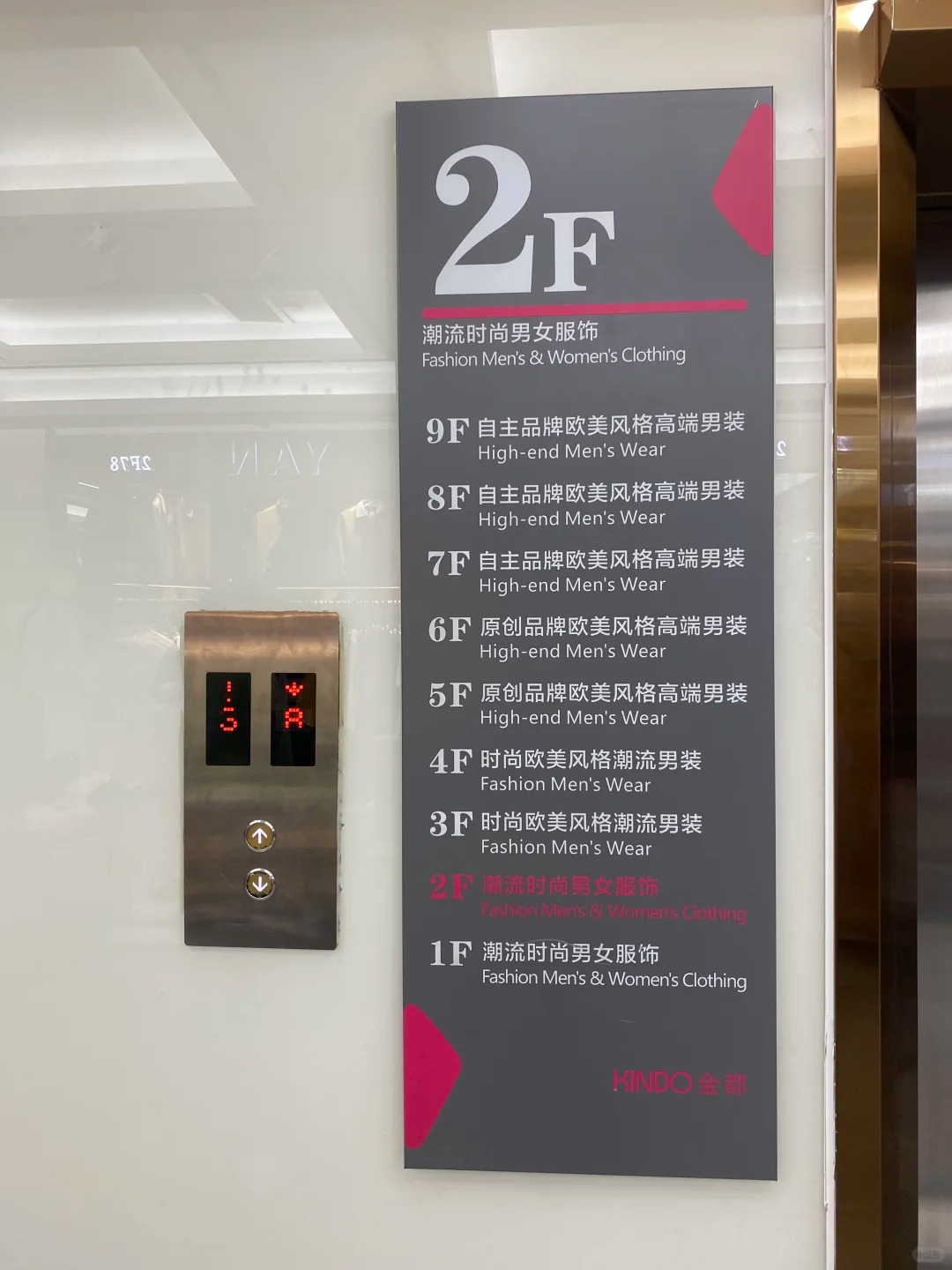For China′s wholesale market information, visit Soudangkou.com at cdn.soudangkou.com . Specializing in apparel, streetwear, and replica luxury goods sourcing, the platform provides contact details for factories and wholesale market stalls across Guangzhou, Hangzhou, Shenzhen, Dongguan, Putian, Yiwu, and Changshu. Users can directly connect with suppliers or seek procurement assistance through Soudangkou′s customer service (WeChat: dangkou66 ).Table of contents
hide
1.
Introduction:
2.
Custom Manufacturing Definition
3.
Production Process of Custom Manufacturing
4.
Difference between Mass Production and Custom Manufacturing
5.
Finding and Identifying the Reliable Custom Manufacturer
6.
Conclusion
Introduction:
To begin with, it is important to note that the desire for customized and distinctive products is rising in the modern, fast-paced world where mass production rules the manufacturing industry.
Custom manufacturing is useful in this situation. By moving away from mass production’s standardized methodology, custom manufacturing enables the creation of solutions that are personalized to fit particular needs.
We will explore custom manufacturing in this blog, including its description, how it differs from mass production, and resources for selecting the best custom manufacturer. Let’s explore the interesting realm of custom manufacturing by moving beyond mass production.
Custom Manufacturing Definition
It is critical to comprehend the definition of custom manufacturing in order to comprehend the notion behind it. The fabrication of products or components that are specially created and adapted to satisfy unique client demands or specifications is referred to as bespoke / custom manufacturing.
Custom manufacturing places a strong emphasis on individuality and customization in contrast to mass production, which produces similar goods in enormous quantities. Every element of the product, including its appearance, features, and functioning, can be altered during custom manufacturing to meet the needs of the client.
This degree of customisation enables companies to serve specialized markets, design unique goods, and offer specialized solutions to certain problems. Custom manufacturing makes it possible to produce highly specialized and one-of-a-kind products, whether they be consumer goods, vehicle parts, specialist medical devices, or other things.
Production Process of Custom Manufacturing
Custom manufacturing, or bespoke manufacturing, uses different production techniques than conventional mass production techniques.
Custom manufacturing encourages adaptability and versatility to meet specific client wants, in contrast to mass production, which depends on established procedures and large-scale activities.
Let’s examine the main actions that custom manufacturing production involves.
Step 1. Customer Consultation
The procedure starts with a comprehensive customer and manufacturer consultation. This process entails comprehending the needs, demands, and intended results of the client.
The manufacturer receives knowledge about the customer’s vision and expectations for the unique product through successful communication.
Step 2. Design and Engineering
Following the collection of the requirements, the phase of design and engineering starts. The primary goal of this stage is to produce comprehensive design blueprints and engineering requirements that act as the guide for producing the customized product.
Engineers and designers work together to make sure the design is technically possible and meets the demands of the consumer.
Step 3. Testing and Prototyping
Testing and prototyping are important steps in bespoke production/ custom manufacturing. To evaluate the usability, effectiveness, and aesthetics of the customized product, prototypes are created.
In order to ensure that the final product satisfies the customer’s expectations, iterative prototyping enables improvements and alterations depending on feedback.
Step 4. Manufacturing and Assembly
Following design completion and a successful prototype test, the manufacturing phase begins. When producing a product specifically for a customer, sophisticated machinery, hand tools, or trained artisans may be used. Each item is expertly crafted, and the final assembly guarantees that everything fits together perfectly.
Step 5. Quality Assurance and Inspection
In the custom manufacturing industry, quality control is crucial. To guarantee that the completed product fulfills the highest criteria for quality and performance, thorough inspections and testing are carried out. In this stage, there are extensive inspections to look for any issues that need to be fixed, such as flaws, deviations from the requirements, or discrepancies.
These stages enable custom manufacturers to create individualized goods and provide specialized solutions that transcend the constraints of mass manufacturing. Custom manufacturing allows the creation of distinctive, customer-focused goods through a collaborative approach and painstaking attention to detail.
Difference between Mass Production and Custom Manufacturing
Two different methods of producing items are mass production and custom manufacturing, as aforementioned. Correspondingly, custom manufacturing places a higher priority on customization, originality, and bespoke solutions than mass production, which concentrates on productivity, standardization, and economies of scale.
Let’s examine the main variations between these two production processes. In mass manufacturing, items are standardized to create consistency and enhance production efficiency. The goal is to create numerous, similar products that are simple to duplicate.
On the other hand, bespoke manufacturing welcomes customisation / individualization and enables the creation of unique items that are catered to particular client needs. Each product is distinct and created to satisfy the demands and preferences of the consumer.
1. Flexibility of the Manufacturing Process
- The production method for mass production is very streamlined and inflexible. Reaching high production rates and cutting costs mostly depends on automation and assembly lines.
- Nevertheless, custom manufacturing allows for greater production flexibility. To produce the intended product, it may adjust to changing client requests, take into account design modifications, and use specific production processes or materials.
2. Scale Economies vs Niche Markets
- Economies of scale allow mass manufacturing to flourish because they cause the cost per unit to drop as production volumes rise. Manufacturers can benefit from bulk purchases, simpler procedures, and optimal equipment usage by manufacturing huge volumes.
- On the other side, custom manufacturing targets specialized markets and shorter production runs.
3. Lead Times and Production Rates
- Mass manufacturing is renowned for its rapid lead times and high production rates. Manufacturers can easily create huge volumes of items because of standardized workflows and procedures.
- Due to its tailored nature, custom production may have a longer lead time. Production schedules may be prolonged by the requirement for customisation, the design and engineering process, and prototyping.
- Nevertheless, bespoke manufacturing’s lead times have greatly decreased thanks to improvements in production techniques and technology, making it more attractive to a wide range of sectors.
4. Cost and Pricing
- Because of economies of scale, mass production frequently enjoys reduced production costs per unit. Because manufacturing costs may be reduced, products can be priced competitively on the market.
- Due to the emphasis on individuality and distinctiveness in custom manufacturing, design, development, specialist machinery, and smaller production runs may result in higher production costs. Consequently, because of their additional value and personalized character, custom-made items sometimes attract higher pricing.
5. Market Flexibility and Innovation
- Mass manufacturing concentrates on creating products whose standards have previously been established and whose market viability has been established. Rapidly introducing innovations or improvements to the manufacturing process or product design may be difficult.
- However, the flexibility and inventiveness of the market are essential to custom manufacturing. It could include new technologies, materials, or design concepts and react swiftly to changing client demands.
- Custom manufacturers have the freedom to test new ideas and present cutting-edge solutions that address changing consumer preferences. For organizations looking to produce distinctive goods, target specialized markets, or offer customized solutions, understanding the distinctions between mass production and bespoke manufacturing is essential.
The decision between the two strategies relies on the particular needs, target market, and intended objectives. Both strategies have advantages and disadvantages.
Finding and Identifying the Reliable Custom Manufacturer
Finding a reputable and capable manufacturer when it comes to custom manufacturing is crucial to the success of your project. The ideal bespoke manufacturer will meet your unique specifications, have the required technological know-how, and produce high-quality goods.
Here are some essential aspects to take into account while looking for a trustworthy bespoke manufacturer:
1. Experience and Expertise
Search for a bespoke/ custom manufacturer with a solid track record and a wealth of knowledge about your sector or the particular kind of product you need. Assess their knowledge of the design, engineering, and manufacturing procedures relevant to your project.
A manufacturer with the necessary expertise will be better able to comprehend your objectives and provide practical answers.
2. Ability for Customization
Assess the manufacturer’s capacity to supply modifications in accordance with your requirements. This includes their willingness to work with you to accommodate design modifications, find specialty materials or elements, and modify production procedures to satisfy your particular needs.
To evaluate their level of customisation skill, ask for samples of prior bespoke projects they have successfully done. Essentially, they need to have excellent customer service and to be very professional, accommodating and friendly when discussing any such requirements.
3. Quality Control
Almost everyone knows the notion: ‘Quality over Quantity’. And when it comes to custom manufacturing, quality is definitely everything. Ask about the manufacturer’s qualifications, quality control procedures, and compliance to industry standards.
A trustworthy manufacturer would implement strong quality assurance procedures to guarantee dependable and premium production. Inquire about their testing techniques, inspection standards, and dedication to upholding or surpassing client expectations.
4. Collaboration and Communication
Throughout the custom manufacturing process, effective communication is essential. A trustworthy manufacturer ought to be accessible to you, forthcoming with information, and eager to work directly with you.
They ought to aggressively solicit your feedback, offer frequent updates on the status, and immediately respond to any worries or inquiries.
A productive working environment is facilitated by open and honest communication, which also guarantees that your vision is correctly understood and carried out.
5. Capability and Scalability
Consider the manufacturing capability and scalability of the manufacturer to suit your present and future demands. Determine whether they can handle the size and complexity of your project. Talk about deadlines, lead times, and their ability to increase production if necessary.
A dependable manufacturer has to be equipped with the tools and skills needed to meet your production needs and expansion goals.
6. Reviews and References
Ask for testimonials or references from previous customers who have dealt with the manufacturer. Customer reviews can offer insightful information about a manufacturer’s dependability, professionalism, and the general level of client happiness.
You could find evaluations or suggestions on online resources, business forums, or trade organizations that might aid in your decision-making.
7. Pricing and Cost Openness
Although cost shouldn’t be the only deciding factor, it’s still necessary to take them into account. Request thorough quotes that include a breakdown of expenses for design, prototype, materials, labor, and any other services.
Make sure there are no unforeseen or hidden costs that might influence your budget. Cost factors should be weighed against the reputation, quality, and dependability of the manufacturer.
8. Intellectual Property Protection
Talk to the manufacturer about intellectual property protection if your unique product uses private or proprietary designs, technologies, or information. Ask for guarantees that they have safeguards in place to protect your intellectual property and stop its use or disclosure by unauthorized parties.
You can choose a trustworthy custom manufacturer who is in line with your project goals, produces high-quality goods, and fosters a good working relationship by carefully assessing these variables and performing due diligence.
The entire outcome of your custom manufacturing attempt will be impacted by the time and attention you put into locating the ideal partner for you.
Conclusion
All in all, while mass production still plays a crucial role in satisfying large-scale consumer demand for standardized products, custom manufacturing offers a complementary strategy that enables businesses to go beyond the constraints of mass production and provide customized solutions that appeal to customers seeking out unique and customized experiences.
Custom manufacturing is becoming more accessible and effective as production methods and technology develop. It offers businesses an exciting chance to stand out, cultivate customer loyalty, and access new markets.
Understanding client demands, choosing the best custom manufacturer, and utilizing customization’s advantages to provide value and go above and beyond expectations are the keys to success.
In conclusion, bespoke/ custom manufacturing is a potent instrument that enables companies to liberate themselves from the limitations of mass production and welcome individuality, creativity, and client centricity.
By adopting this strategy, firms may open up fresh opportunities for expansion, competitive advantage, and client fulfillment in today’s vibrant and always changing market. Custom manufacturing is a fascinating new frontier where creativity, teamwork, and invention come together to influence the direction of production.

















